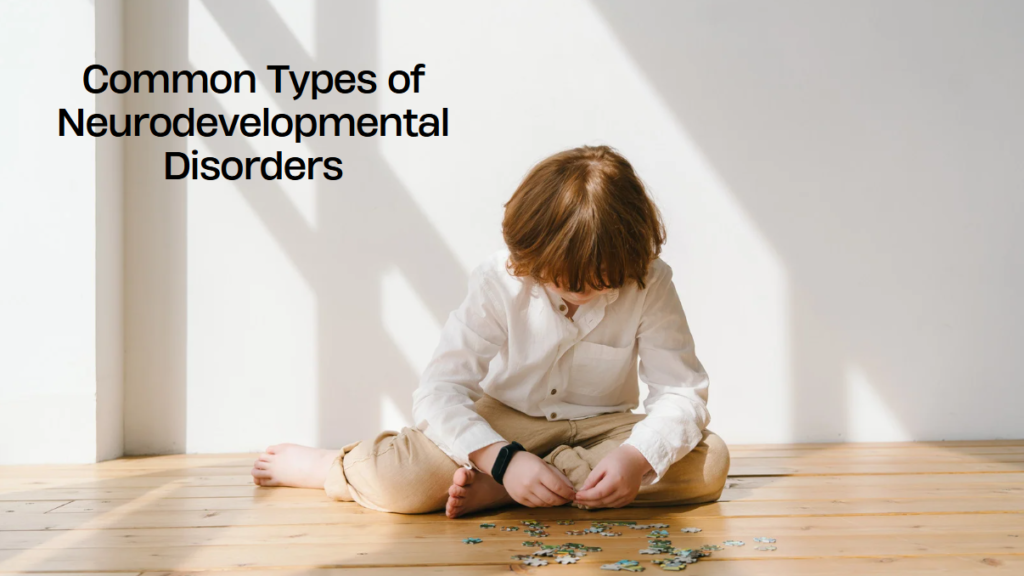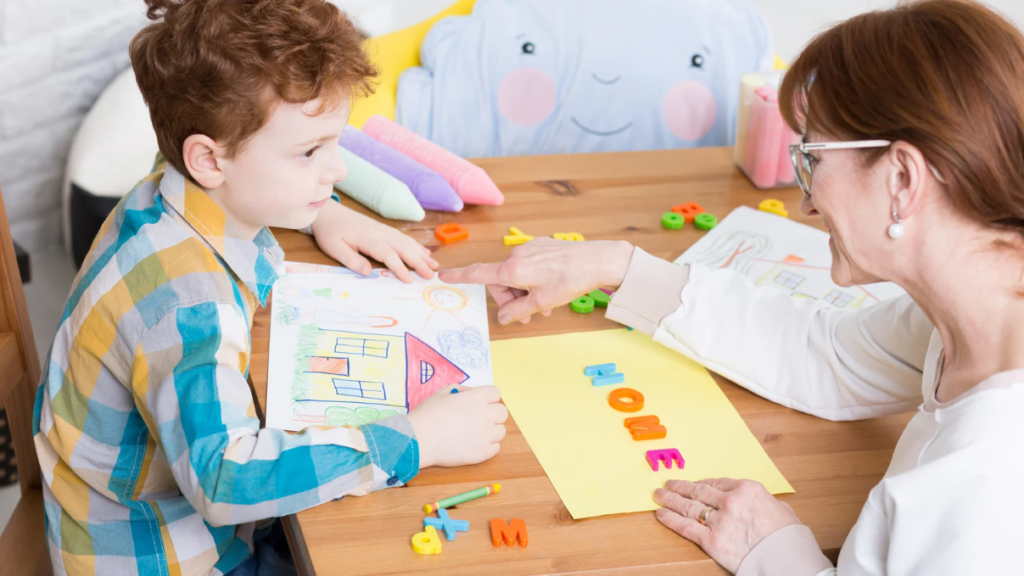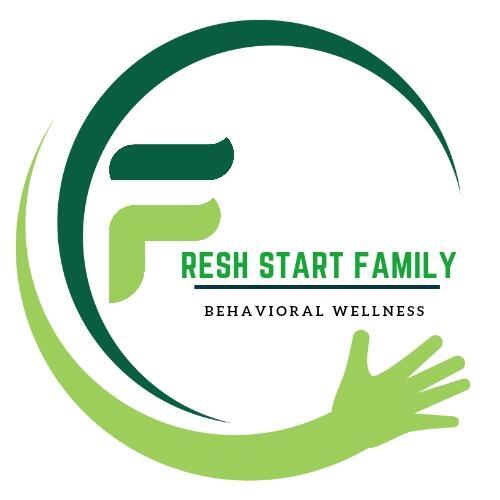If you’re a parent or caregiver feeling overwhelmed by questions about your child’s development, you’re not alone. It’s natural to worry when a child struggles with speech, focus, or social interactions. But these challenges may be more than just “growing pains.” They could point to something deeper. You may be asking yourself, What Is a Neurodevelopmental Disorder—and how do I know if my child has one? The good news? Early understanding and support can make a powerful difference. This blog will answer the question What Is a Neurodevelopmental Disorder, explain the signs to watch for, and share the resources available to help your family thrive.
Understanding What is a Neurodevelopmental Disorder

Neurodevelopmental disorders (NDDs) are conditions that affect how a child’s brain develops. These disorders influence thinking, behavior, communication, motor skills, and learning. They typically appear early in childhood and may persist throughout life, although many children benefit significantly from early support.
These disorders are not caused by bad parenting or lack of discipline. They are medical conditions rooted in the brain’s structure and function. Children with NDDs may experience difficulty in school, challenges with peer relationships, or delays in reaching developmental milestones. Recognizing these conditions early allows families to seek the help they need and begin an effective path to support.
Common Types of Neurodevelopmental Disorders

Neurodevelopmental disorders affect how the brain grows and functions, influencing learning, behavior, and social interaction. These conditions often appear early in life and can vary widely in severity and impact.
- Autism Spectrum Disorder (ASD): ASD is characterized by challenges with social interaction, communication, and restricted or repetitive behaviors. Symptoms can range from mild to severe, and every child with autism may present differently.
- Attention-Deficit/Hyperactivity Disorder (ADHD): ADHD involves persistent patterns of inattention, hyperactivity, and impulsivity that interfere with daily functioning. It can impact academic performance, relationships, and self-esteem, often continuing into adulthood.
- Intellectual Disability (ID): This disorder is marked by limitations in intellectual functioning and adaptive behaviors such as reasoning, learning, and problem-solving. It can result in delayed development and the need for long-term support.
- Learning Disabilities (LD): Learning disabilities, like dyslexia or dyscalculia, affect specific areas of learning despite normal intelligence. Children may struggle with reading, writing, or math but often develop strategies to overcome these challenges with support.
- Communication Disorders: These include difficulties in understanding or using language, such as speech delays or problems with articulation, fluency, or social aspects of communication. Early speech therapy can often make a significant difference.
- Motor Disorders: Conditions like developmental coordination disorder or Tourette syndrome affect movement and coordination. Children may appear clumsy or have involuntary tics that can impact daily tasks and social interactions.
Each of these disorders has its own symptoms, but they all affect the way a child learns, communicates, and interacts with the world.
Early Signs to Watch For
Spotting a neurodevelopmental disorder early can lead to earlier interventions—and better outcomes. While signs vary, here are some age-based red flags parents and caregivers should be aware of:
Infancy and Toddler Years (0–3 years)
- Limited eye contact or lack of social smiling
- Delayed babbling or speech milestones
- Unusual muscle tone (either floppy or stiff)
- Difficulty with feeding or swallowing
- Rarely responds to name or familiar voices
- Limited interest in interactive games (like peekaboo)
- Repetitive movements like hand-flapping or rocking
- Delays in crawling, standing, or walking
Preschool Age (3–5 years)
- Trouble following simple instructions
- Limited vocabulary or difficulty forming sentences
- Lack of interest in playing with peers
- Intense reactions to sounds, textures, or lights
- Struggles with toilet training beyond age-typical range
- Difficulty with pretend play or make-believe
- Excessive tantrums or difficulty with transitions
- Repetitive speech or echolalia (repeating words or phrases)
School-Age (6–12 years)
- Difficulty focusing or staying on task
- Struggles to read social cues or make friends
- Learning delays in reading, writing, or math
- Impulsive behavior or poor self-regulation
- Trouble following multi-step directions
- Avoidance of group activities or team play
- Difficulty organizing tasks or managing time
- Persistent anxiety or mood swings beyond age norms
If you notice any of these signs, it doesn’t necessarily mean your child has a disorder—but it does mean it’s time to talk to a professional.
Diagnosis: What Families Can Expect

Getting a diagnosis for a neurodevelopmental disorder can feel like a daunting experience—but it’s also an essential and empowering first step toward understanding your child and getting the right support. The process is designed to bring clarity, not confusion, and to help families access the resources their child needs to thrive.
It typically begins with a conversation with your child’s pediatrician. If there are concerns about developmental delays, communication challenges, learning differences, or social behaviors, your provider may conduct a developmental screening. Based on those results, they might refer you to one or more specialists for a more in-depth evaluation.
These professionals may include:
- Pediatric neurologists: to assess neurological functioning and brain development
- Psychologists or psychiatrists: to evaluate cognitive, emotional, and behavioral functioning
- Speech-language pathologists: to examine communication and language development
- Occupational therapists: to assess sensory processing, motor skills, and daily functioning
- Psychiatric Mental Health Nurse Practitioners (PMHNPs): Advanced practice nurses trained to evaluate mental health and developmental conditions, prescribe medications, and provide therapy and family guidance tailored to the child’s unique needs.
Each expert brings a unique lens, and together, they provide a comprehensive view of your child’s developmental profile. Evaluations often involve multiple steps, including parent interviews, direct observation of your child, standardized assessments, and sometimes input from teachers or caregivers.
The goal is to understand your child’s strengths and challenges—not to place a label, but to build a roadmap for meaningful intervention. A diagnosis not only gives you answers, but it also opens doors to services, school accommodations, therapeutic support, and community resources. With the right diagnosis, your family can take proactive steps toward a brighter, more supported future..
Support and Treatment Options

There is no one-size-fits-all treatment for neurodevelopmental disorders, but the good news is that early, personalized support can lead to significant progress. Children with neurodevelopmental conditions can learn, grow, and thrive when given the right tools and a supportive environment tailored to their unique needs.
A well-rounded treatment plan often combines various therapies and services. Here are some of the most commonly recommended approaches:
1. Behavioral Therapy
This type of therapy, including Applied Behavior Analysis (ABA), helps children develop positive behaviors, manage emotional responses, and learn important life skills. It is especially effective for children with autism and ADHD, focusing on reinforcing helpful behaviors and reducing those that interfere with daily functioning.
2. Speech and Occupational Therapy
Children with communication challenges or sensory processing difficulties benefit greatly from these therapies.
- Speech therapy improves language, articulation, and social communication.
- Occupational therapy helps with fine motor skills, self-care routines, sensory integration, and navigating everyday environments with confidence.
3. Educational Support Services
Schools play a key role in supporting children with neurodevelopmental disorders. Individualized Education Programs (IEPs) and 504 Plans are legal frameworks that provide tailored accommodations, such as extra time on tests, quiet spaces for focus, or one-on-one assistance. These plans ensure that children receive the support they need to succeed academically and socially.
4. Family Counseling and Parent Training
A neurodevelopmental diagnosis doesn’t just affect the child—it impacts the entire family. Family therapy provides emotional support, stress management tools, and communication strategies to help families navigate challenges together. Parent coaching or training programs can also empower caregivers with skills to better support their child’s development and manage day-to-day behavioral concerns.
5. Social Skills Groups
Many children with neurodevelopmental disorders benefit from peer-based group therapy to practice communication, turn-taking, emotional regulation, and making friendships in a structured, supportive setting.
6. Medication (When Appropriate)
In some cases, medication may be prescribed to help manage specific symptoms such as attention difficulties, anxiety, or mood instability. Medication is usually part of a broader treatment plan and closely monitored by a medical professional.
Most importantly, effective care is collaborative. When therapists, teachers, pediatricians, and family members work as a team, the child benefits from consistent strategies and a unified support system across all areas of life.
Early intervention, a strong support network, and a treatment plan that evolves as your child grows can make all the difference. With the right help, children with neurodevelopmental disorders can lead fulfilling, meaningful lives—full of growth, joy, and connection.
Supporting Your Child with a Neurodevelopmental Disorder

Parenting a child with a neurodevelopmental disorder, such as ADHD, autism spectrum disorder, or a learning disability, can be both rewarding and challenging. The key is to provide structure, patience, and emotional support while advocating for their unique needs.
- Create a Consistent Routine: Children with neurodevelopmental differences often thrive on predictability. Establish regular schedules for meals, homework, play, and bedtime to help reduce anxiety and improve focus.
- Celebrate Small Wins: Progress may look different for your child, and every step forward matters. Acknowledge achievements—no matter how small—to build their confidence and motivation.
- Use Clear and Simple Communication: Break instructions into manageable steps using straightforward language. Visual aids, checklists, or gentle reminders can help reinforce understanding and reduce frustration.
- Collaborate with Teachers and Therapists: Work closely with your child’s educators and healthcare providers to align goals and strategies. Regular check-ins ensure consistency across home and school environments.
- Encourage Emotional Expression: Help your child identify and express their feelings by naming emotions and modeling healthy coping strategies. This fosters emotional regulation and strengthens your connection.
- Take Care of Yourself, Too: Supporting a child with special needs requires emotional resilience. Prioritize your own well-being through support groups, therapy, or simple moments of rest so you can show up with strength and compassion.
You Are Not Alone
Understanding neurodevelopmental disorders is the first step in providing the right care and support for your child—and it’s a powerful one. The journey ahead may feel uncertain at times, but know this: you are not alone. Many families have walked a similar path and found strength, healing, and hope along the way.
At A Fresh Start Behavioral Health Services, we’re here to walk beside you with compassion, knowledge, and unwavering support. Our team of experienced professionals is dedicated to helping families like yours navigate challenges, celebrate progress, and build a brighter, more empowered future. Every child deserves the chance to thrive, and every parent deserves a supportive team that believes in their child’s potential.
Let us help you take the next step with confidence. Contact us today—hope starts here.

